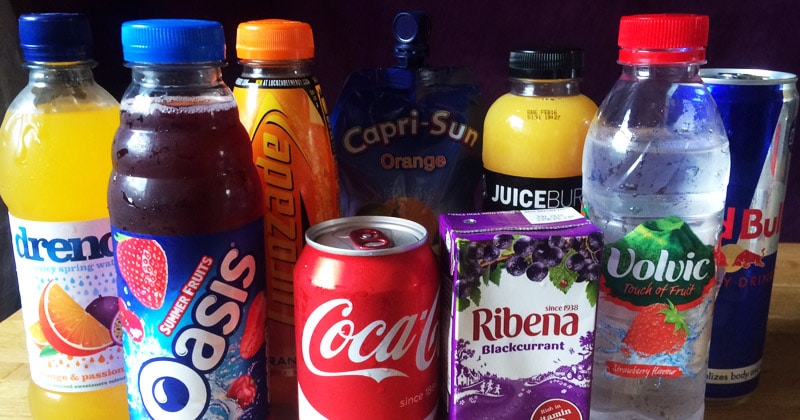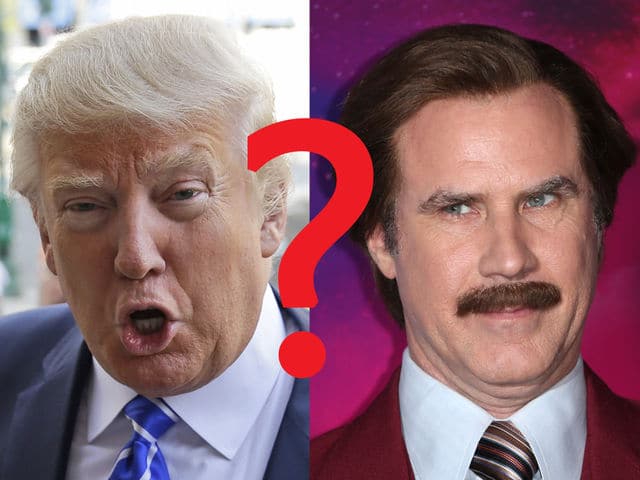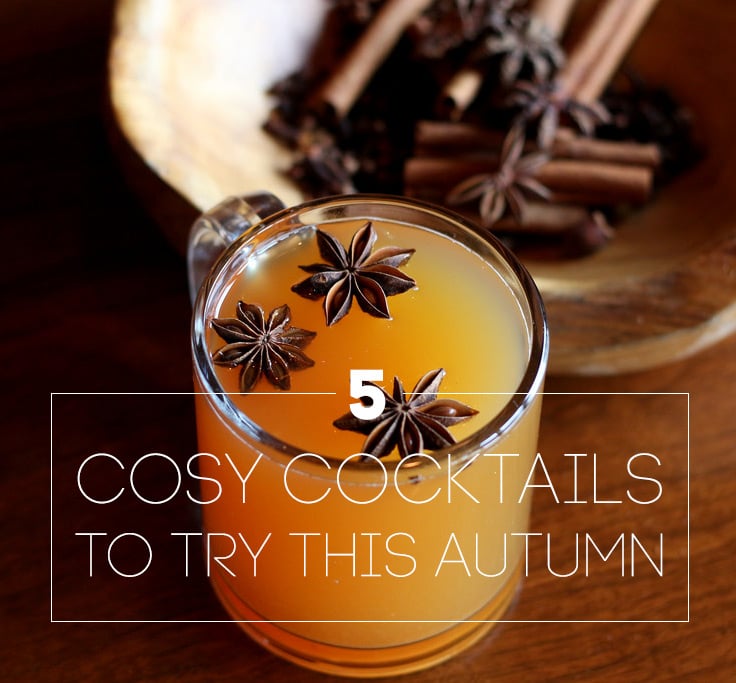
Notes on the above…
To ensure the nutritional values were correct, I went round to my local shop and purchased most the drinks included, so the sugar vales are taken directly from the packaging. Below is a photo to prove it!

The only ones I didn’t physically have at hand were Frijj, Mountain Dew, and the Starbuck’s Frapp – nutritional information for these taken from here, here, and here respectively.
The number of sugar cubes in each drink was calculated by the total sugar content, divided by 4, which is the amount of sugar in a UK silver spoon sugar cube.
Orange juice, while often considered a healthy alternative to other soft drinks, actually has a very high fructose sugar content (as you have seen). In one glass of orange juice, you are getting the sugar from around 3 oranges, with none of the fibre.
In case you like tables (who doesn’t like tables?), here is the data from the infographic.
[table id=1 /]
But wait, why is sugar in drinks so bad?
The problem with consuming sugar in drinks, is that it is much easier to consume large quantities of sugar in a single sitting when in liquid form (without feeling full).
To give a comparison, there are around 11g of sugar in a ring doughnut, and around 21g in a Mars Bar, so to get the same amount of sugar you consume in one large can of Red Bull, you would have to eat 5 doughnuts, or 2 and a half Mars Bars.
Research on the health effects of sugary drinks from Harvard University finds that: –
- People who regularly consume sugary drinks have a 26% greater risk of developing type 2 diabetes
- Just one sugary drink a day can result in a 20% higher risk of heart attack
- Consuming one sugary drink a day can lead to a 75% increase in the risk of developing gout
- There is strong evidence that sugary drinks are one of the major causes of obesity, and obesity related diseases
Oh, and just to confirm…
A nice cold glass of tap water has exactly 0 calories, and 0 grams of sugar 🙂

For more info on recommended sugar intake and other advice on dietary health see the World Health Organisation’s fact sheet and if you would like to share this infographic on your own site, then please get in touch.



